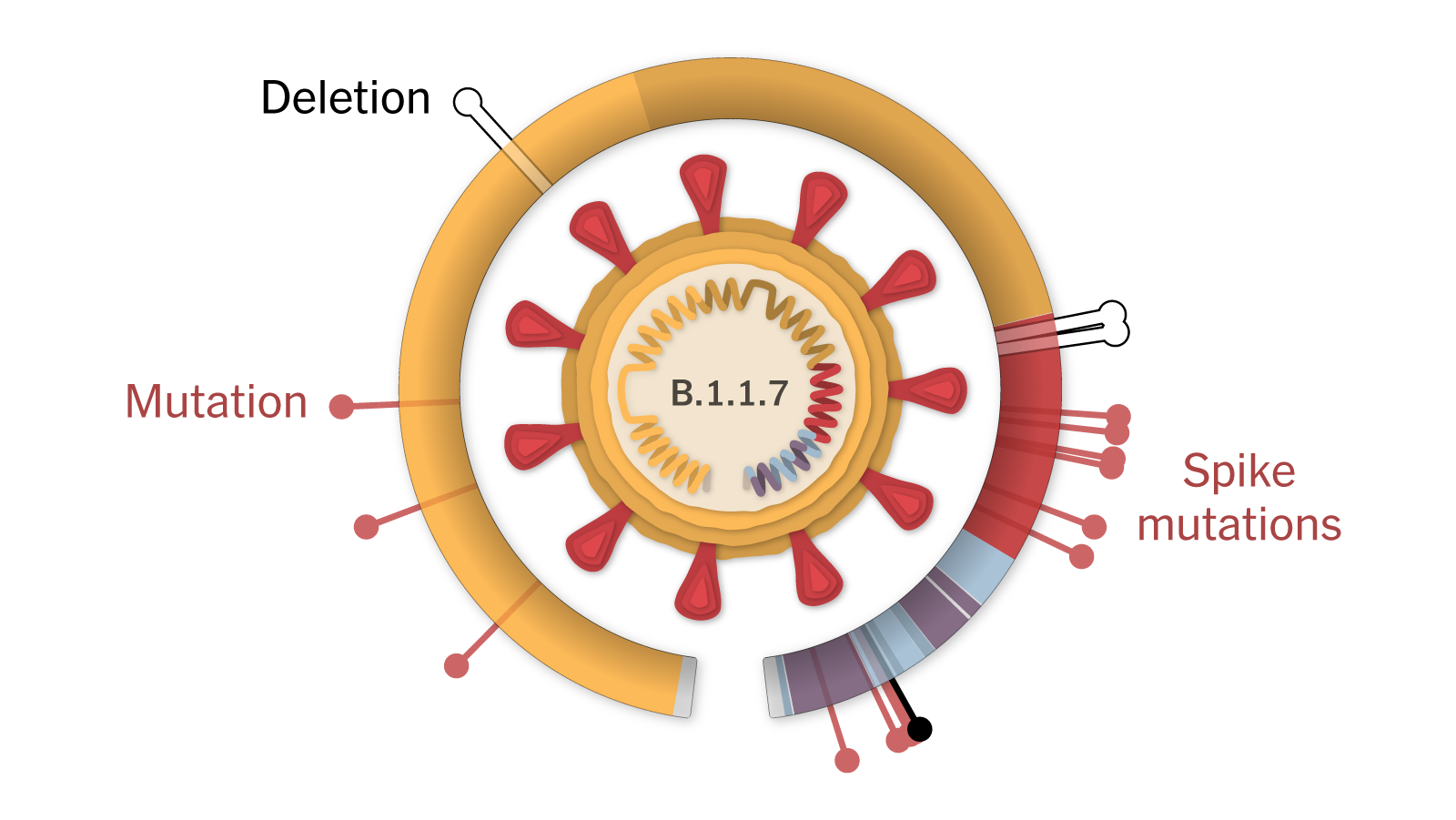New COVID-19 Variant JN.1: What You Should Know About Symptoms And Prevention

Table of Contents
The emergence of new COVID-19 variants, like the recently identified JN.1, necessitates staying informed about their characteristics and how to mitigate their spread. This article provides crucial information regarding the symptoms associated with JN.1 and the preventive measures you can take to protect yourself and your community. We will delve into the specifics of this variant, helping you understand the risks and take appropriate precautions.
Understanding the JN.1 Variant
While comprehensive information on the JN.1 variant is still emerging and constantly evolving, initial findings suggest [Insert information about origin if available, citing source: e.g., "a possible origin in [Location], according to a preliminary report by [Scientific Journal/Institution]."]. It's crucial to understand that the information surrounding new variants is dynamic.
- Mutations and Transmissibility: The JN.1 variant possesses [Insert specific mutation details if known, citing source. E.g., "mutations in the spike protein," linking to a reputable source like the WHO or CDC]. These mutations might impact its transmissibility, potentially making it more or less easily spread than previous variants. Further research is needed to fully understand this impact.
- Severity: At present, there is [Insert information about severity if known. E.g., "insufficient data to definitively determine whether JN.1 causes more severe illness than previous variants." Or, "early evidence suggests that the severity of JN.1 is similar to [Previous variant]."]. More research is needed to fully characterize the clinical severity of infection with JN.1.
- Reliable Sources: For the most up-to-date and accurate information on the JN.1 variant and other emerging COVID-19 variants, please refer to the World Health Organization (WHO) [link to WHO website] and the Centers for Disease Control and Prevention (CDC) [link to CDC website]. Consult your local health authority for specific guidance relevant to your region.
Recognizing JN.1 Symptoms
It's important to remember that COVID-19 symptoms, including those associated with the JN.1 variant, can vary significantly from person to person. Some individuals may experience mild symptoms, while others may develop more severe illness. Many symptoms overlap with other common illnesses, making accurate self-diagnosis difficult.
-
Common Symptoms: Common COVID-19 symptoms, including those potentially associated with JN.1, include:
- Fever or chills
- Cough
- Shortness of breath or difficulty breathing
- Fatigue
- Muscle or body aches
- Headache
- New loss of taste or smell
- Sore throat
- Congestion or runny nose
- Nausea or vomiting
- Diarrhea
-
Less Common Symptoms: Less common symptoms can include skin rashes or discoloration of fingers or toes.
-
Seek Medical Advice: If you experience any symptoms suggestive of COVID-19, including those listed above, it’s crucial to seek medical advice promptly. Early diagnosis and treatment can help improve outcomes. Use reliable at-home testing, but follow up with a healthcare professional for confirmation and guidance. Keywords: "COVID-19 symptoms JN.1," "JN.1 variant symptoms."
Effective Prevention Strategies for JN.1
The most effective way to protect yourself from the JN.1 variant and other COVID-19 variants is to practice established preventative measures. These strategies are equally effective against all circulating variants.
- Vaccination: COVID-19 vaccination remains one of the most powerful tools we have in combating the pandemic. Staying up-to-date with vaccinations, including booster shots, is essential for reducing your risk of severe illness, hospitalization, and death. Keywords: "COVID-19 vaccination JN.1," "JN.1 vaccine protection".
- Mask Wearing: Wearing a well-fitting mask in public indoor settings, especially in areas with high transmission rates, can significantly reduce the spread of the virus.
- Hygiene: Practicing good hygiene is crucial. This includes:
- Frequent handwashing with soap and water for at least 20 seconds.
- Using hand sanitizer with at least 60% alcohol when soap and water are not available.
- Covering coughs and sneezes with a tissue or your elbow.
- Social Distancing: Maintaining physical distance from others, especially when indoors, can help minimize the risk of exposure.
- Testing: Regular testing, especially if you have been exposed to someone with COVID-19 or are experiencing symptoms, can help identify infections early and prevent further spread. Keywords: "JN.1 testing," "COVID-19 testing JN.1 variant."
Staying Updated on JN.1 and Other Variants
The information surrounding new COVID-19 variants is constantly evolving. It is vital to stay informed about the latest developments by consulting reliable sources.
- Credible Sources: Reliable sources for updates include:
- World Health Organization (WHO): [link to WHO website]
- Centers for Disease Control and Prevention (CDC): [link to CDC website]
- Your local public health authority
Conclusion
This article provided an overview of the new COVID-19 variant, JN.1, focusing on its potential symptoms and crucial prevention strategies. Remember, staying informed and practicing preventative measures are key to protecting yourself and your community from this and other emerging variants.
Call to Action: Stay informed about the latest information on the JN.1 COVID-19 variant and other emerging variants by consulting reliable sources. Take proactive steps to protect yourself and your loved ones through vaccination, responsible hygiene practices, and by following public health guidelines. Learn more about JN.1 prevention and other COVID-19-related information from trusted sources.

Featured Posts
-
 Guelsen Bubikoglu Nun Son Hali Yesilcam Guezeli Hayranlarini Bueyueledi Mine Tugay Dan Da Tepki Geldi
May 31, 2025
Guelsen Bubikoglu Nun Son Hali Yesilcam Guezeli Hayranlarini Bueyueledi Mine Tugay Dan Da Tepki Geldi
May 31, 2025 -
 Newfoundland Wildfire Crisis Hundreds Evacuated Homes Reduced To Ashes
May 31, 2025
Newfoundland Wildfire Crisis Hundreds Evacuated Homes Reduced To Ashes
May 31, 2025 -
 Empanadas De Jamon Y Queso La Receta Mas Facil Sin Horno
May 31, 2025
Empanadas De Jamon Y Queso La Receta Mas Facil Sin Horno
May 31, 2025 -
 Real Estate Market Crisis Home Sales At Record Lows
May 31, 2025
Real Estate Market Crisis Home Sales At Record Lows
May 31, 2025 -
 Orange County Sports Game Results And Player Statistics For March 11th
May 31, 2025
Orange County Sports Game Results And Player Statistics For March 11th
May 31, 2025
